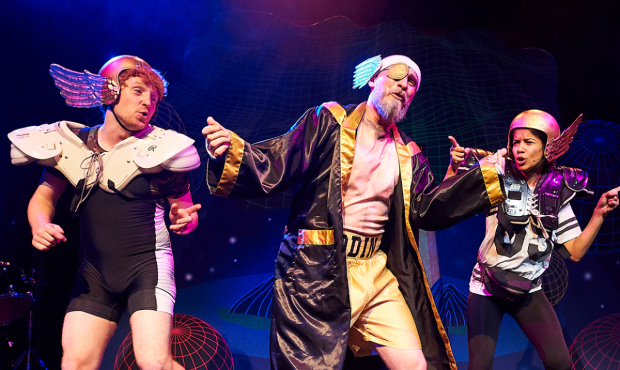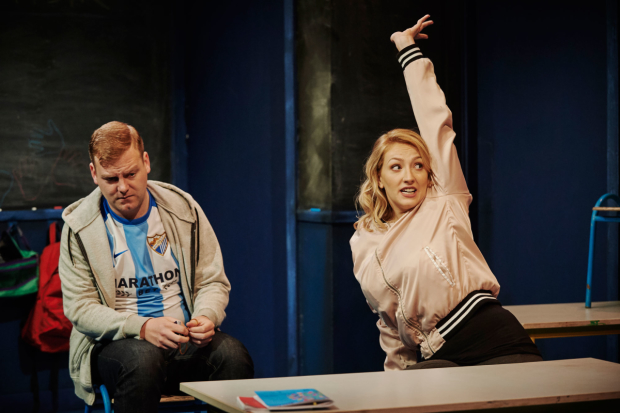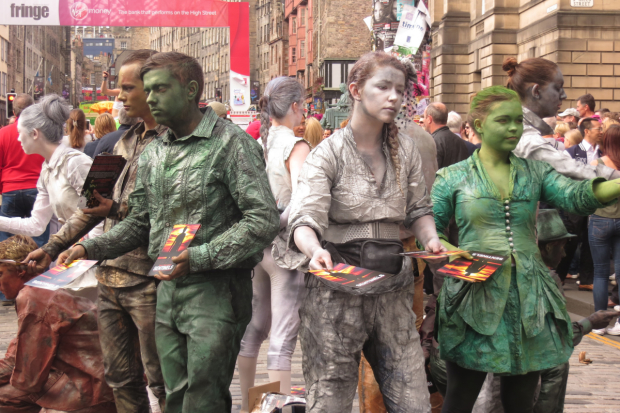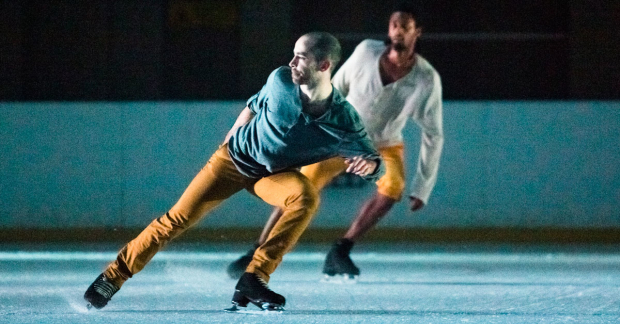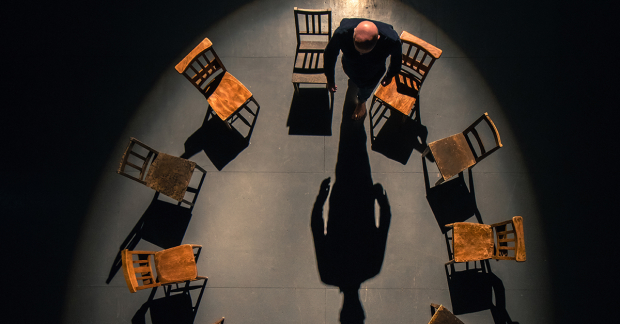Review: Underground Railroad Game (Traverse Theatre, Edinburgh Fringe)
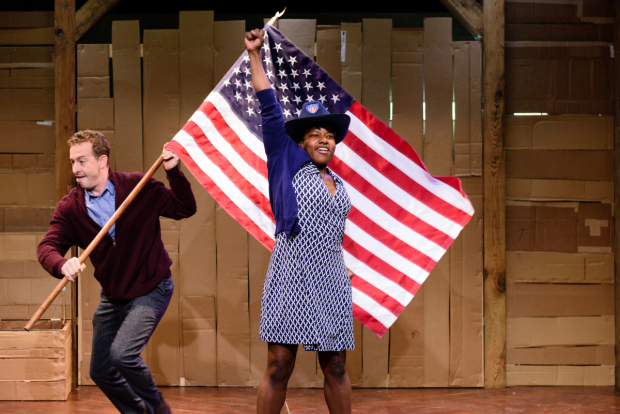
© Ben Arons
Sometimes I find myself asking what theatre is for, and why I love it so much. It's a question that always surfaces in the excesses of the Edinburgh Festival, when you often find yourself in a room being vaguely entertained or half-stimulated or a quarter irritated by the huge cornucopia of offerings available.
But then you see something like Underground Railroad Game and you recognise at least one part of the answer. Theatre exists to bring people together in a room and confront them with uncomfortable truths in unexpected ways. It does this uniquely well; less realistic than film, more communal than literature, more direct than poetry or dance, it provokes and challenges, makes you see things you are trying not to look at.
Underground Railroad Game, devised and performed by Jennifer Kidwell, who is black, and Scott R. Sheppard, who is white, has already been a terrific success in the States where it was first seen in 2016 and is receiving its British premiere here before transferring to Soho Theatre. It is comic but only in the way that the sight of someone falling through a hole in the ground is funny; it takes the earth from beneath your feet as it shocks and discomfits. It is a piece of theatre you are never likely to forget.
As its title suggests, it is about slavery and its opening scene, set at night, is of a slave seeking sanctuary in a barn, terrified of capture. She is saved by a Quaker Abolitionist, one of the underground network sending slaves to safety in Canada. The scene is both tense and strangely hokey. Which, as it turns out, is the whole point.
This is an enactment organised by Hanover Middle School teachers Stuart and Caroline, designed to teach us – their pupils – about slavery, a dark stain on the history of America, in which the Underground Railroad is "a silver lining". The tone of the lesson is jaunty. Because "we learn about history by living history", we are divided into the Confederate and Unionist armies. Points will be earned by the Unionists who smuggle slave dolls to freedom and safety; for Confederates, the house points on offer are for their capture.
This teaching model is based on a real game that Sheppard experienced. Perhaps because of that, each detail of the paraphernalia of this cheery learning model is perfectly reproduced: the patronising voices, the school bells, the boxes labelled Safe House, the vocabulary sign when we hit a difficult word. But things soon reel into darker and more dangerous territory. It turns out that Stuart and Caroline are having a relationship and as they begin to date, the tangled web of historical assumptions that underlie even the simplest of statements is fearlessly and viciously exposed. His courtship of her, full of racist blunders, played as light comedy, is cringeworthy.
Directed with clear-eyed efficiency and beautifully and effectively designed visually and acoustically by a four strong team of Tilly Grimes, Steven Dufala, Oona Curley and Mikaal Sulaiman, the production uses unforgettable, sometimes brutal, images to make its points, progressing through a sophisticated series of tableaux until it culminates in an almost unwatchable scene of cruelty and arousal that fully exposes the shame of slavery.
Its effectiveness arises partly from how surprising it is, so I don't want to give away too much. Suffice it to say that by the close, values have been tested, platitudes overturned, taboos broken. Over and over again it returns to the slipperiness of assumption; what Stuart means when he says something may not mean the same thing as it does to Caroline. Slavery is personal to her in a way that it never can be to him.
All of this is written across her face as she listens to his crass attempts at reconciliation. You can only admire the fearlessness of Kidwell and Sheppard, for their courage not only in creating so bold and unsettling a piece of theatre, but for their searing commitment to performing it. At the close, after all control has been lost and terrible truths revealed, the teachers pull themselves together in front of us for a final time. "History has been reaffirmed," they tell us, cheerfully. The "Battle Hymn of the Republic", coming across the auditorium, has a hollow ring.




